Introduction
A series of articles published in Shipping Today and Yesterday between October 2015 and February 2016 had described the Wartime career of Capt. Geoffrey Jameson serving on board five ships operated by Crest Shipping Company Limited. The 1966 edition of Ocean Ships, the starting point for the author’s recently published book on “Classic British Cargo Liners”, while not listing Crest Shipping, had included the less well known Cove Shipping Company Limited of Nassau, Bahamas, which, at that time, had owned three vessels, Orecrest, Skycrest and Tidecrest, together with another ship, Formentor, owned by the associated Argo Shipping Company Limited. Photographs of these ships proved to be scarce and their owners’ identities were unclear. Subsequent research, greatly assisted by the Croatian maritime historian Marijan Žuvić, has proved most enlightening. The owners of those three companies, along with several others, were Yugoslav nationals named Milica Banac (widow and second wife of Božo Banac) and Vane Ivanović.
Božo Banac
After completing a course in trade at Graz academy, Austria, Božidar (Božo) Banac, born at Dubrovnik in 1883, had moved in 1902 to Glasgow, where he formed good relations with Sir James Lithgow and the Royal Bank of Scotland, and in 1905 to London where he joined the Baltic Exchange and started his own company representing Dalmatian shipowners operating outside of the Adriatic and Mediterranean. Among these owners was Captain Ivo Račić (1845-1918) from Cavtat near Dubrovnik, whose daughter Marija became his first wife.
Once World War I had ended Božo Banac became a member of the SHS delegation to the Versailles Congress, supporting Ante Trumbić, foreign minister and merchant navy advisor. The Kingdom of SHS (Serbs, Croats and Slovenes), which was formed on 1st December 1918, was on 3rd October 1929 renamed the Kingdom of Yugoslavia by King Alexander I who was unfortunately assassinated in Marseille during a state visit to France in 1934. The delegation persuaded the Allies to put pressure on Italy to return all of the captured Austro-Hungarian ships owned by their people seized in the occupation of Rijeka, the Croatian Littoral and Dalmatia.
In June 1937 Božo Banac had been successful in obtaining loans from the Royal Bank of Scotland in order for Yugoslav Lloyd to buy the Sušak based company Jadranska Plovidba, which operated 55 ships on coastal services along the Yugoslav coast including the Adriatic islands. In addition he bought the companies Parobrodarsko Drustvo “Marovic” s.o.j., and Prekomorska Plovidba D.D., each the owner of five ships. Two of the latter company’s ships, Lika and Korana, were transferred to Crest Shipping in 1939/40 to become Milcrest and Oakcrest for operation by the British Ministry of War Transport (“MOWT”).
Božo Banac sadly died in New York in April 1945, leaving his shares in Crest Shipping to his second wife Milica.
Vane Ivanović
Born in Osijek, then in the Austro-Hungarian Empire, Ivan Stevan (“Vane”) Ivanović (9th June 1913-4th April 1999), had entered the world of shipping through Božo Banac, his stepfather, and in 1937 became a director of Jugoslavenski Lloyd D.D. (“Yugoslav Lloyd”), at that time Yugoslavia’s largest shipping company.
Vane’s father, Ivan Rikard Ivanović, was a Vienna-educated lawyer, one of the founders of the National Progressive Party (NNS) and a deputy in Croatia’s Parliament and his mother, Milica Popović, a Croatian Serb, was also from a prominent political family but they had divorced when he was young. In 1921, after Vane’s mother had married Božo Banac, the family settled in London where Banac was managing the fleet of Atlantska Plovidba “Ivo Račić”. Vane received his education at Westminster School, London, and Peterhouse College, Cambridge, where he read Economics and became ardently pro-British. However, in 1933 he was obliged to return to Yugoslavia to serve nine months’ military conscription at the Cavarly School at Zemun, Belgrade. Following that experience, given the continuing world economic crisis, Banac sent Vane to the Trepča mine to improve business connections with its British owners and to gain knowledge of the work in the flotation mill near Sitnica river and in the zinc mines of Zletovo. In January 1935, Banac sent Vane to Southampton to oversee the work modernizing the former Royal Mail Liner Ebro which had been laid up for four years due to the economic crisis and had been purchased by Yugoslav Lloyd. In the autumn of 1935 Vane was sent to Buenos Aires as a “traveller-student” to join the vessel Marija Račić. In his memoirs, Vane revealed that working in Yugoslavia Lloyd’s office in Buenos Aires had motivated his career in shipping.
Vane Ivanović was also a renowned athlete, in the August 1936 Berlin Olympics running in both the 400m race and the 110m hurdles (see the table below) and, in both disciplines, achieving new Yugoslav records. However he may be best remembered for persuading the entire Yugoslav team to refuse to give the Nazi salute to Adolf Hitler!
In 1939 Vane Ivanović married June Fisher with whom he had two sons, Ivan Božidar (“Božo”), born in September 1940, and Andrija, and also one daughter, Milica. In 1967 Vane Ivanović was appointed by Prince Rainier III to the post of Consul General of Monaco in London, an honour to which, following his death in 1999, his son Božo has succeeded.
The Creation Of Crest Shipping
Božo Banac was the first shipowner from any neutral state to join the British in September 1939. By placing ten of his ships under Allied control he was not only risking a confrontation with the Belgrade government, but also putting his capital at risk. His actions were due to his anglophilism, disagreements with Yugoslavia’s foreign policy and his belief that Britain was the best guarantor of the trading interests of small states. To avoid an open conflict with the Yugoslav government, Banac formed a separate British-registered holding company, Crest Shipping Company Ltd., managed by Vane Ivanović, to which eight ships were soon transferred, crewed by British nationals it is thought (based upon the memoirs of Capt. Jameson) recruited by Watts, Watts & Co. British seamen also then served on Yugoslav-flagged ships in those rare instances when Yugoslav nationals refused to sail in war zones on grounds that their country was neutral. Two new ships, Aircrest and Suncrest, were also soon acquired. Overseas Navigation Trust Company Limited was created to operate these and five later wartime newbuildings which were also operated under the British flag and ownership of Crest Shipping.
Whereas Yugoslavia, although officially remaining neutral, had secretly supported the Axis powers, Božo Banac and Vane Ivanović had joined the Allies immediately on the outbreak of World War II on 1st September 1939. Their invaluable anti-Axis role prior to the nation being invaded by Germany in April 1941 has therefore been rather overlooked by historians. The subsequent anti-Axis resistance roles of the opposing Communist leader Josip Broz Tito (later Marshal Tito) and Dragoljub “Draža” Mihailović, the army General, have been much better documented.
In the summer of 1943, having lost most of the Crest Shipping fleet, Vane Ivanović joined the British Army, assigned to the Yugoslav section of the Political Warfare Executive (PWE), the propaganda arm of Britain’s Special Operations Executive. He spent the remainder of the War between London, Cairo and Bari and was demobilized as a Major.
Post-War Yugoslavia
Due to the Communist seizure of power in Yugoslavia in 1945 Vane Ivanović then remained in Britain as a political refugee and, despite the fact that most of his pre-war fleet had been either destroyed or nationalized by the new Yugoslav authorities, resumed a successful career in shipping. He also became a leading member of the Demokratska Alternativa, a group of democratic-minded Yugoslav emigre politicians opposed to Tito’s regime, and in 1949 founded the “Benevolent Association of Free Citizens of Yugoslavia”. Through this organization, and as a private individual, he helped many refugees, students, artists and political dissidents to escape Tito’s dictatorship. He was also a keen supporter of Jean Monnet’s European Movement. During the Cold War years Ivanović organized many discussions about the fate of his homeland, which led to the two-volume collection “A Democratic Alternative”, published in 1963, which warned that the establishment of independent states in the Balkans would spawn ‘fatal conflicts’, concluding in 1982 that Yugoslavia could only survive as a democratic community of sovereign nations and that any other scenario would almost inevitably lead to a civil war, an event which sadly did occur. In 1990 Ivanović became a citizen of the Republic of Croatia but died in London on 4th April 1999.
Ivo Račić
Capt. Ivo Račić had operated as a ship owner from 1896 as Pomorsko Udruženje ‘Unione’ and then, from 1909 to 1925, as Slobodna Plovidba Ivo Račić I Drugovi. Prior to World War I his ships were mainly engaged either in the transport of coal from the Black Sea to Italy and Austro-Hungarian ports on the Adriatic or cereals from the Danube to Northern Europe. After this trade had ceased following the Russian Revolution they were largely employed shipping coal to Brazil and Argentina, returning to the Mediterranean and Adriatic with grain from Argentina. In 1919, Božo Banac and his family went to Rome to attend the wedding of Racic’s son Edi. Of the many members of both families gathered for the wedding, several tragically died of Spanish flu including Ivo Račić. The artist Ivan Meštrović was appointed to create in the achapel of St. Roch at Cavtat cemetery a grandiose mausoleum to the Račić family.
On 1st May 1918 Pomorsko Udruženje ‘Unione’ had, together with Pomorsko Udruženje ‘Napried’, merged with the longer established Dubrovačka Parobrodarska Plovidba (“DPP”), to form the joint stock company Dubrovačka Parobrodarska Plovidba D.D. (“Dubrovnik Steam Navigation Co. Ltd.”) with Unione’s four remaining ships among those transferred by 1920 to the combined venture. January 1930 unfortunately saw the tragic loss of DPP’s 1911 built former Unione owned vessel Daksa in the Bay of Biscay, with the loss of 38 of her crew, during a voyage from La Goulette to Rotterdam with a cargo of iron ore. However, by 1939 Dubrovačka Plovidba AD (as it was then known) was operating 14 coastal and 11 deep sea ships, these being passed to the MOWT for use by the Allies during World War II. After the War had ended DPP’s eight surviving ships were transferred by the Communist Government to newly created Yugoslav national lines.
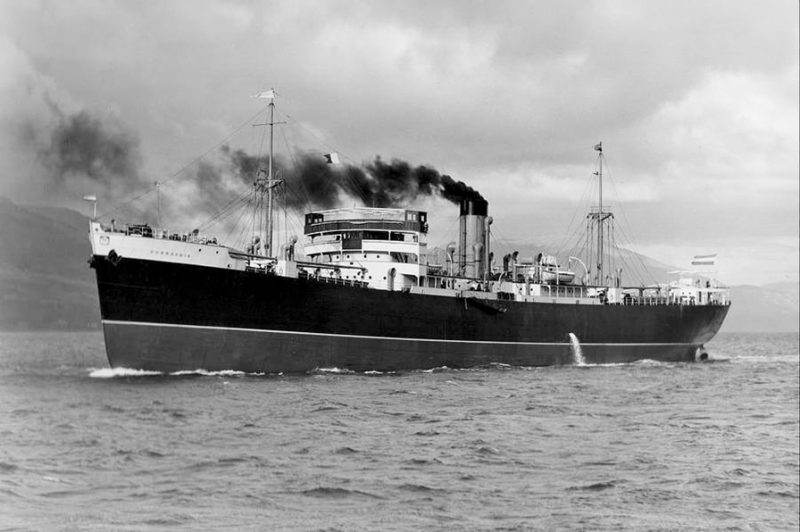
Dubrovnik on trials in the River Clyde in 1938 under her original ownership of Dubrovačka Parobrodarska Plovidba D.D. (Dubrovnik Steam Navigation Co. Ltd.)
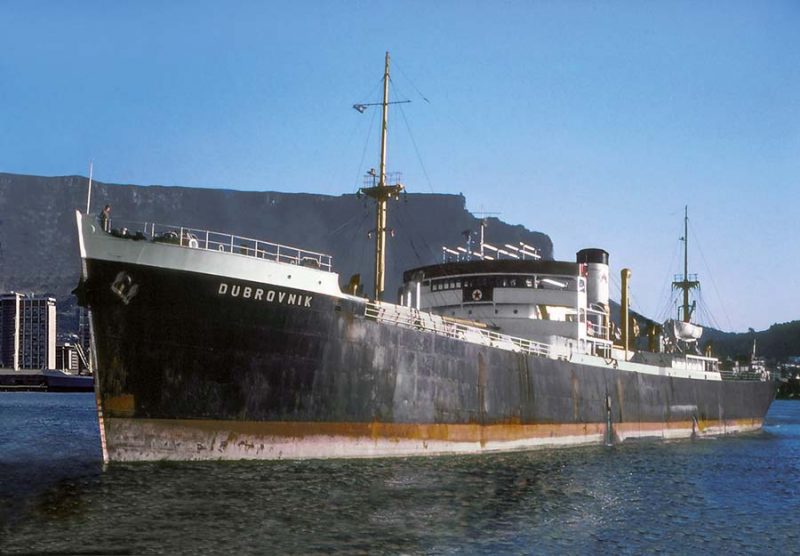
Dubrovnik at Cape Town in the ownership of Splosna Plovba
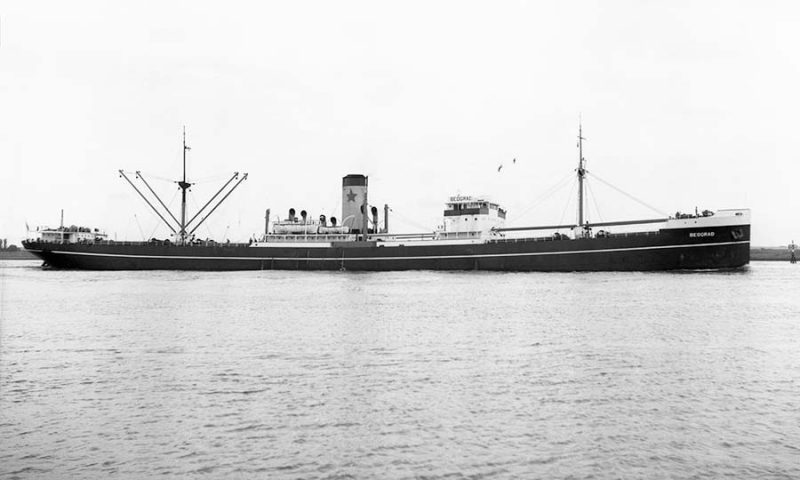
Federiko Glavić as Beograd arriving at Rotterdam in August 1965 (David Pemberton – Malcolm Cranfield collection)
Yugoslav Lloyd
In 1922, following the Trumbić-Bertolini agreement, the ten remaining ships of Slobodna Plovidba Ivo Račić I Drugovi were transferred to Dubrovnik registry and the ownership of the newly created Atlantska Plovidba “Ivo Račić”.
In 1924 Božo Banac had travelled to Buenos Aires and Chile to meet with successful Croatian emigrants including the brothers Nikola and Miho Mihanović from the village of Doli near Dubrovnik, the owner of over eighty local ships, and Pasko Baburica, a native of Koločep, who had organized the mining and exporting of salitre (sodium nitrate) from Chile. Baburica’s younger partner, Frano Petrinović, from Brac, helped to persuade Baburica not only to open an office in London for the sale of salitre but also to finance the establishment of Jugoslavensko-Amerikanska Plovidba, a new shipping company registered at Split with Božo Banac as managing director, based in London. Jugoslavenska Lloyd D.D. (“Yugoslav Lloyd”) was formed on 1st January 1929 by the merger of Jugoslavensko-Amerikanska Plovidba, which by then had built up a fleet of ten ships, and Atlantska Plovidba “Ivo Račić”. Yugoslav Lloyd was registered at Split but for practical reasons operating management was based in Zagreb. With loans from Baburica’s London office, new ships named Triglav and Avala were then ordered from Wm. Doxford at Sunderland. These two ships, completed in August and October 1929 respectively, were unfortunately delivered shortly before the stock market crash which greatly damaged the world’s economy.
However Yugoslav Lloyd took the opportunity of low ship prices to acquire two passenger ships. Both built at Belfast for Royal Mail Lines, the former Araguaya of 1906 was purchased in 1930 to trade as Kraljica Marija (Queen Maria) while the former Ebro of 1915 was purchased in 1935 to become Princesa Olga.
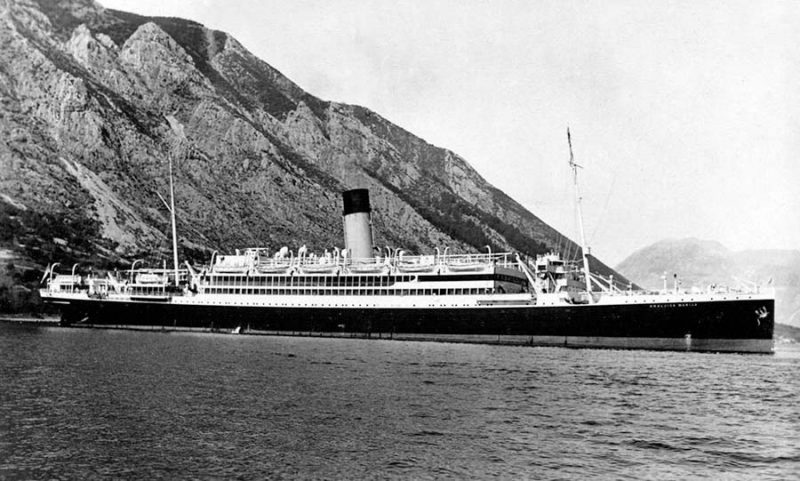
Kraljica Marija at Malta in 1935 (Frank Behrends collection)
These liners were employed either on passenger services to Levant (Syria) or on tourist cruises on the Adriatic and Mediterranean. Princesa Olga was sold in April 1940 to Cia. Colonial de Nav. of Portugal (“CCN”) which, following a refit consisting of new interior furnishings and the creation of a third class for emigrants, operated her as Serpa Pinto until sold in 1955 to breakers at Antwerp. During World War II, as a neutral ship, she made twenty transatlantic voyages from Lisbon to either Rio de Janeiro or the United States or Canada, saving many refugees from Nazi Europe. On 26th May 1944 submarine U-541 stopped the ship south of Bermuda but Admiral Dönitz thankfully refused permission to sink the ship. It is understood that, although a very costly purchase, Serpa Pinto became very successful and profitable post-war and that CCN had also wished to buy the Kraljica Marija.
Kraljica Marija’s last arrival at Dubrovnik was in early September 1939 with a group of 40 German tourists who had not been allowed to disembark at Monte Carlo. She was then sold to the French Government early in 1940 and renamed Savoie for intended operation by Compagnie Generale Transatlantique to East Africa and the French West Indies but instead made her way to Casablanca where she was sunk on 8th November 1942 by gunfire from the U.S.S. Massachusetts during the U.S. disembarkation in North Africa.
In addition the luxury yacht Tiha, built at Clydebank in 1902, which between 1914 and 1923 had been loaned to the Admiralty as a hospital ship by Admiral David Beatty, was also acquired in 1935.
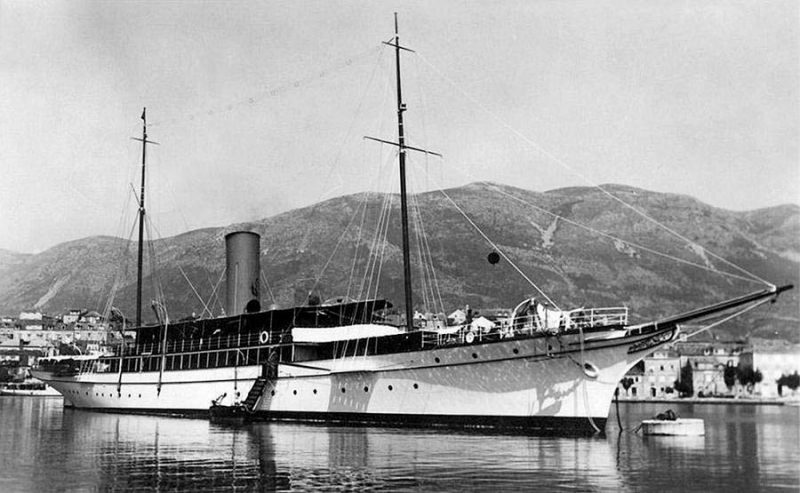
The Yacht Tiha (ex Sheelah) at the anchorage at Kaštelanski Zaljev.
World War II
Following the outbreak of World War II, on his stepfather’s instructions, Vane Ivanović had on 4th September 1939 contacted the Ministry of War Transport, which was still being formed, offering 10 of the 22 ships which he controlled. As Yugoslavia was a neutral country, these were accepted on commercial terms and transferred to the newly created Crest Shipping Company Limited.
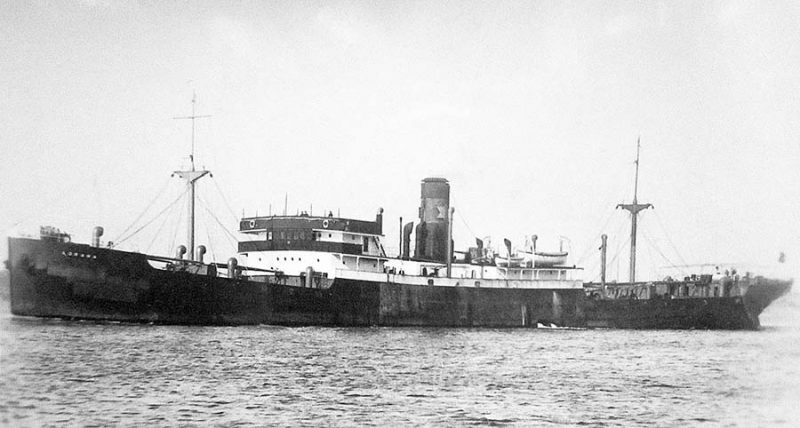
Korana, later Oakcrest
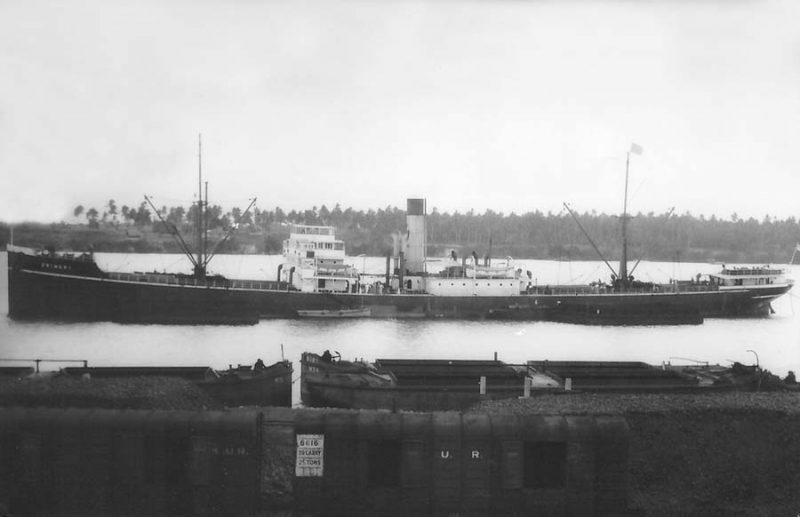
Zrinski, later Ashcrest
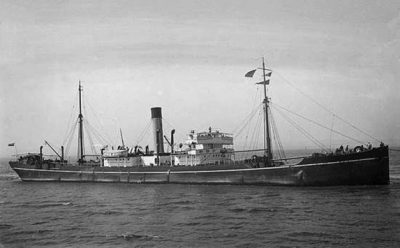

Ivo Račić, later Yewcrest (www.tynebuiltships.co.uk)
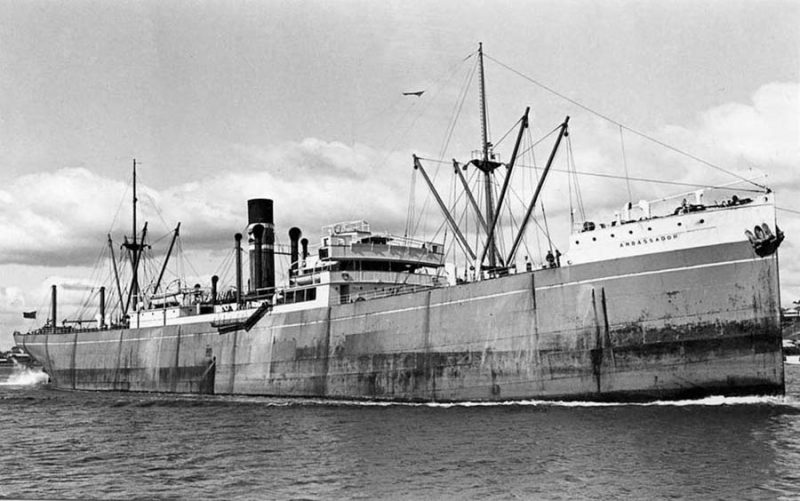
Ambassador, later Bancrest
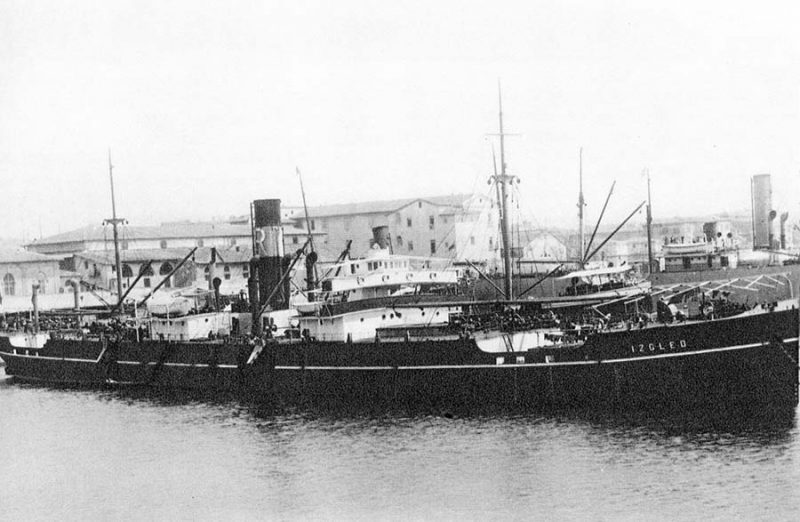
Izgled, later Elmcrest
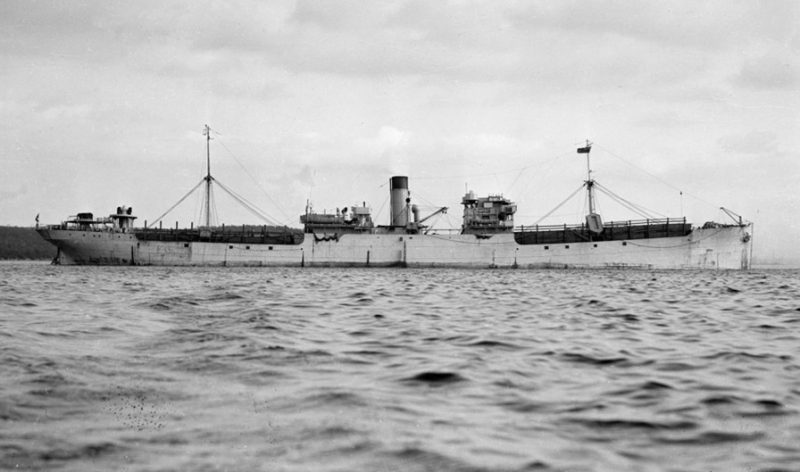
Maycrest
Following the fall of France in June 1940, leaving Božo Banac stranded in the south of France while suffering poor health, and as a majority of Yugoslav Lloyd’s ships were in United States waters, in danger of being frozen by the U.S. Government in the event of an Axis attack on Yugoslavia, Vane Ivanović decided to move Yugoslav Lloyd’s operations to New York, a move which gave the British Foreign Office some concern. However two new ships were purchased for Crest Shipping in 1940.
Suncrest (FotoFlite)
When, early in 1941, it became likely that Yugoslavia would sign the Tripartite Pact with Germany, Ivanović appealed in vain to Prince Paul and Prime Minister Dragiša Cvetković not to do so. Although Ivanović had not played any part in the coup d’état on 27th March 1941 against Prince Paul and his Government, Ivanović met with Frederick Hoyer-Millar of the British Embassy in Washington to say that he did not intend to respect his Government’s decision to join the Axis and that all ships under his control were to be considered Allied ships.
Some other Yugoslav shipowners including Frano Petrinović also offered their help to the Allies. Concerned to prevent the handing over of Yugoslav ships in neutral waters to the Axis powers, both Ivanović and the British Government were keen to establish a Yugoslav Shipping Committee (“YSC”) based on the model of the Greek Shipping Committee.
It is understood that Vane Ivanović, as the President of the YSC, asked Konstantin Fotić, the Yugoslav minister to Washington (and supporter of General Mihailović) to requisition the entire Yugoslav fleet in the name of his Government. By this measure, the U.S. Government, still neutral, would recognize the ‘Yugoslav character’ of the fleet, and could use this as an excuse to reject any Axis request to hand over Yugoslav ships. Several independently owned Yugoslav ships had also participated in the Allied effort under flags of convenience.
Losses of Yugoslav ships during World War II had included the sinking of six ships owned by Yugoslav Lloyd, these being Carica Milica in November 1939, Trepča in March 1942, Nemanja in April 1942, Triglav in July 1942, Vojvoda Putnik in March 1943 and Njegoš (scuttled in Gooseberry No.3, Normandy, on 9th June 1944). In addition Yugoslav Lloyd lost the Vidovdan, wrecked in December 1939 in the South China Sea, and Tomislav, seized by Italians at Shanghai in 1941.
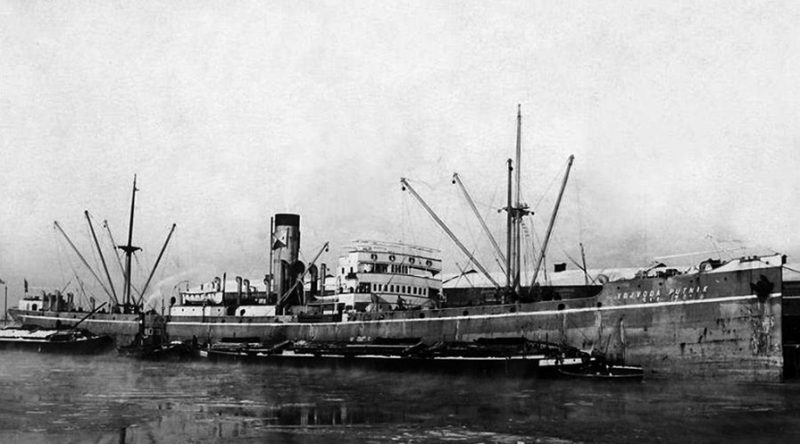
Vojvoda Putnik (www.tynebuiltships.co.uk)
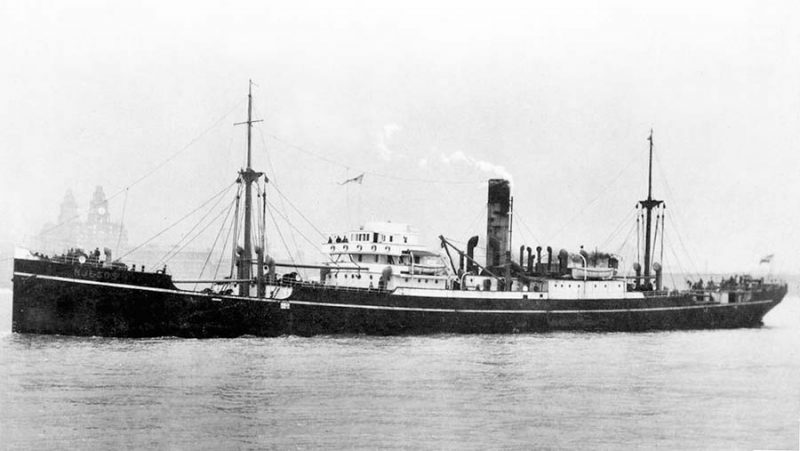
Njegoš (www.croinfo.net)
Prekomorska Plovidba had lost three ships, Kupa in May 1942, Zvir by collision in November 1942 and Rećina in April 1943 while Jadranska Plovidba lost their largest ship, the Predsednik Kopajtić, in September 1942.
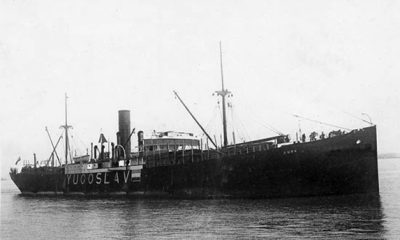
Kupa, the former Trewidden of 1917. (www.wrecksite.eu)
On 15th May 1942, while on voyage from New York to Alexandria, she was hit under the bridge by a torpedo from U-156, sinking by the bow in a few minutes.
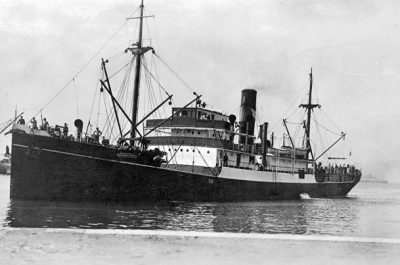
Predsednik Kopajtić (Miljenko Smokvina collection)
Parobrodsko Društvo ‘Marović’ had lost Petar by collision in March 1942 and Pavla which was wrecked in September 1942. However the 1900 Sunderland built Neti, of just 2,893 gross tonnes, after taking part in nine North Atlantic convoys, survived the War only to be taken over by the new Communist regime in 1946. Renamed Šibenik she was broken up in Yugoslavia in 1952. Meanwhile Četvrti had come under air attack in December 1940 while on passage from the Faroe Islands to Bilbao with a cargo of 2,000 tons of dry salt cod fish when she came under air attack. Salvaged by the Irish Government, she was then purchased for £58,000 and renamed Irish Beech
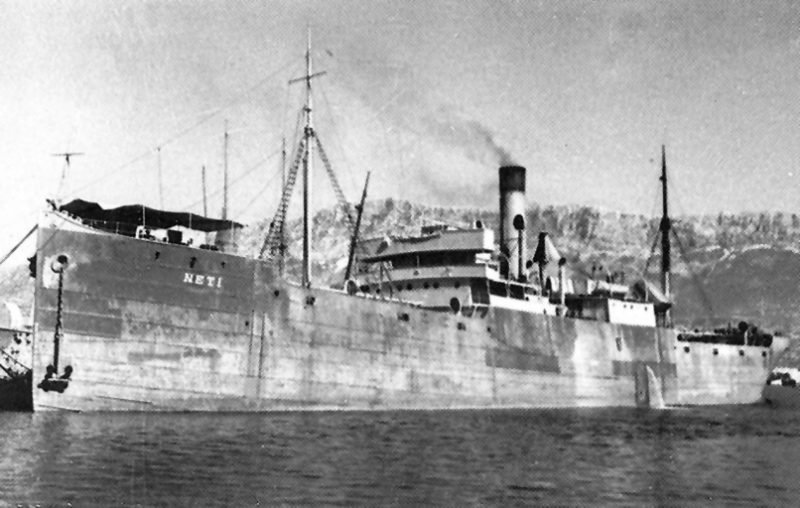 .
.
Neti
At the end of the War the Yugoslav Lloyd fleet was reduced to two ships, the 1918 built Marija Petrinovic and the 1927 built Aleksandar I which were nationalised in 1946 to trade respectively as Gorica and Biokovo. Meanwhile the British Government had paid to Božo Banac the insured values of the Crest Shipping vessels which had been lost. These funds were used to buy five new ships.
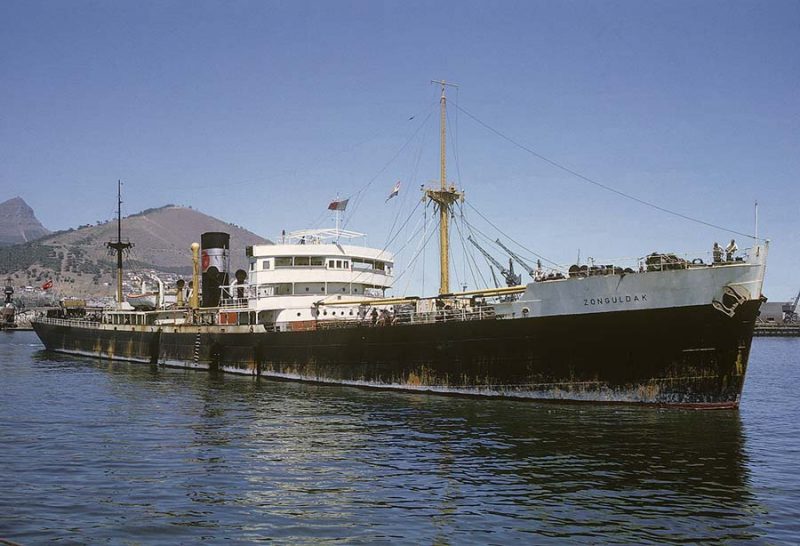
Zonguldak (ex Helencrest) at Cape Town in January 1968 (Trevor Jones collection)
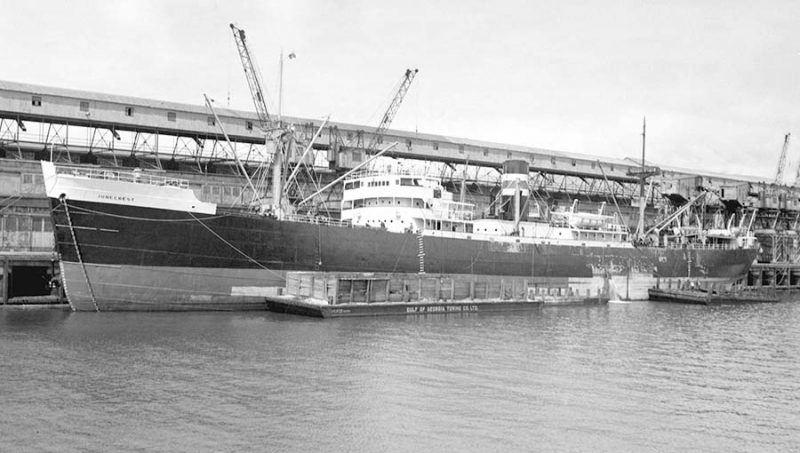
Junecrest at Vancouver on 21st May 1954 by Walter E. Frost (City of Vancouver Archives)
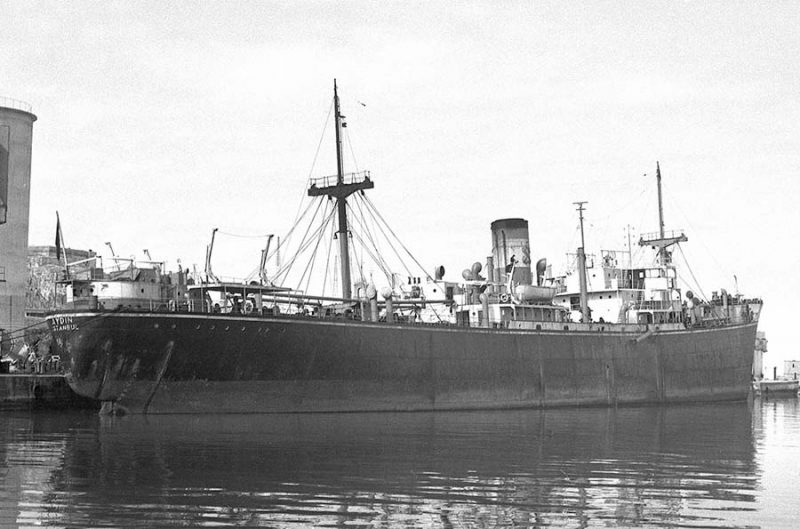
Aydin (ex Junecrest) (Malcolm Cranfield collection)
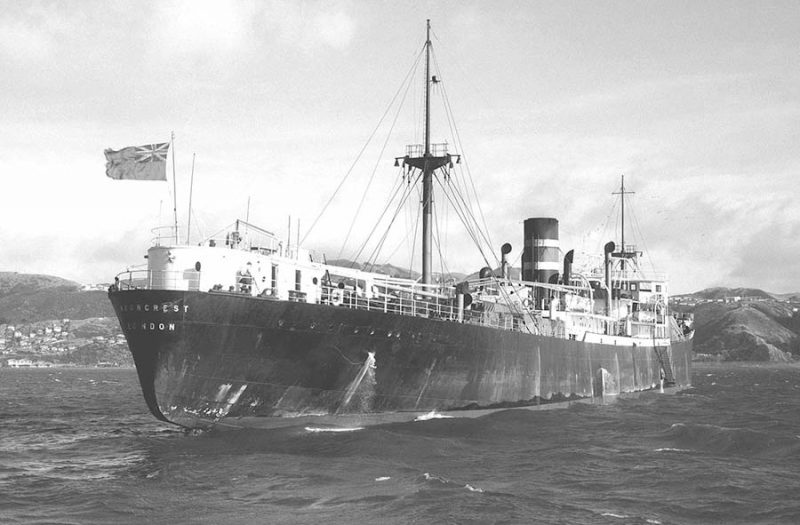
Mooncrest at Wellington on 11th January 1952 (V. H. Young & L. A. Sawyer)

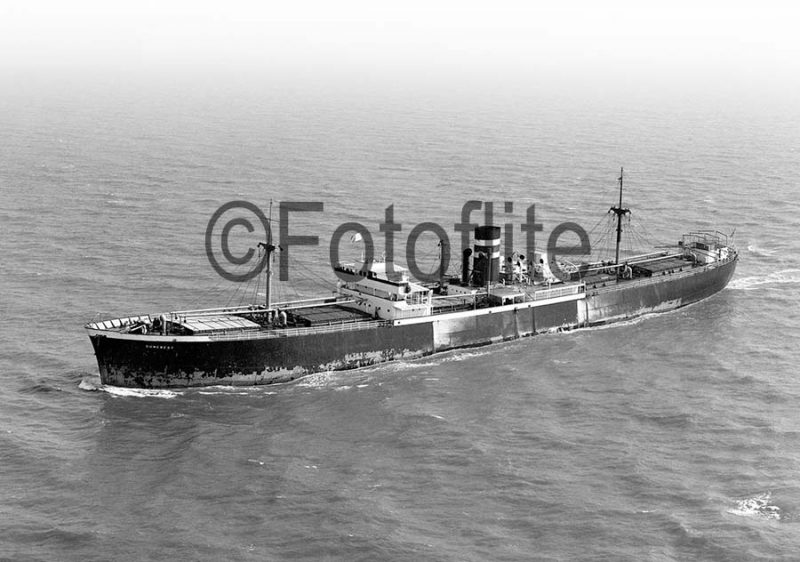
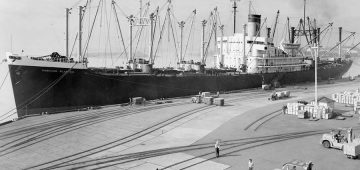
Comments
Sorry, comments are closed for this item